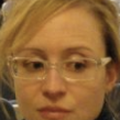Goal
Community Commons is a place to discuss topics and post documents and references relating broadly to medical humanities.
Members
-

Organizer/ Contact
-

Participant
-

Participant
-

Participant
-

Abigail Neely, PhD
Member
-

Member
-

Member
-

Member
-

Member
-

Mark Williams, PhD
Member
-

Neil Vickers, BA DEA MPhil DPhil
Member
- View all
Report on 2020 Network Annual Meeting
The CHCI Health and Medical Humanities Network met virtually on May 19th, 2020, to discuss current projects and the most pressing problems for the humanities raised by the Covid-19 pandemic.
Virtual Network Meeting: May 19, 2020
The annual CHCI Health and Medical Humanities Network meeting will take place virtually on Tuesday, May 19th. Since we hope to accommodate as many time zones among Network members as possible, the meeting will take place from 12:00-2:00 pm, Eastern Daylight Time.
CFP: Summer Institute 2020: Space, Place and Design
The objective of this CHCI Summer Institute is to investigate how space, place, and design might interplay with individualized and compassionate health care. Space, along with its less abstract and more social corollary, place, are critical terms in the formal study of literature; meanwhile, the architectural concept design has newly entered a broader disciplinary lexicon to simultaneously suggest method, process and form. We want to consider the role that space, place and design play in health care and aesthetics.
Image (jpg) uploaded by Arden Hegele to Community Commons | 29 Jul 2020
Theater of War for Frontline Medical Providers - July 30, 2020
Theater of War for Frontline Medical Providers is an innovative project that presents dramatic readings by acclaimed actors of scenes from ancient Greek plays to help nurses, doctors, EMS, first responders, administrators, and other health care providers engage in healing, constructive discussions about the unique challenges and stressors of the COVID-19 pandemic. This event will present scenes from Sophocles' Ajax to create a vocabulary for discussing themes such as personal risk, burnout, loss, betrayal, suicide, and moral distress in order to foster connection, community, moral resilience, and positive actions. THURSDAY JULY 30, 2020, 7PM-9PM EDT. Register at TOWEMS.EVENTBRITE.COM
Link added by Arden Hegele to Community Commons | 22 Jul 2020
Humanities in the Emergency Room-a Conversation with Rishi Goyal
While New York City was the epicenter of the ongoing global Covid-19 pandemic, Rishi Goyal served as Attending Physician in the Emergency Department at Columbia University Medical Center. Every day, he and his colleagues tended to and cared for patients struck down by this incurable illness as mortalities throughout the city, and throughout the United States, overwhelmed and exposed systems of medical care in America. At the same time, Goyal is a PhD in English and Comparative Literature, Director of the Medicine, Literature, and Society major at Columbia University, and a coordinator of CHCI’s Health and Medical Humanities Network. That is to say, these sometimes seemingly unbridgeable continents of knowledge—the humanities and the natural sciences—find a meeting point in Goyal. Recently, CHCI’s Global Programs Strategist, Jason Rozumalski, had a phone call with Goyal in order to talk about the experience of working in Emergency Medicine during the pandemic and how the humanities not only create important ways to make that experience comprehendible but also have the power to transform those experiences into actions toward better care systems and the reimagining of a better tomorrow.
Document (pdf) uploaded by Arden Hegele to Community Commons | 21 Jul 2020
Art in the Age of Mass Incarceration-August 5
Wednesday, August 5, 2020 Join on Zoom at 5 p.m. Talk & Q&A: 5:15-7 p.m. Register now for the event: https://columbiacuimc.zoom.us/meeting/register/tJIkcumtqj0iHNJQOJF3lpnLXW3HoF-ymIP6 Columbia University Irving Medical Center FREE & OPEN TO THE PUBLIC For August Narrative Medicine Rounds we are delighted to welcome Nicole R. Fleetwood, who is a writer, curator, and professor of American Studies and Art History at Rutgers University, New Brunswick. She will be speaking about her book Marking Time: Art in the Age of Mass Incarceration. Nigel Hatton, an associate professor of literature and philosophy and critical race and ethnic studies at the University of California, Merced, will moderate the virtual event, which will include a dialogue with Lisette Oblitas, a Columbia University Justice-in-Education scholar and visual artist featured in Marking Time.
Link added by Arden Hegele to Community Commons | 14 Apr 2020
"An ER Doctor in New York," by Network member Helen Ouyang
I’m an E.R. Doctor in New York. None of Us Will Ever Be the Same. A Covid diary: This is what I saw as the pandemic engulfed our hospitals.
Link added by Arden Hegele to Community Commons | 9 Mar 2020
Exhibition: Significant - A Bunch of Viruses (Cambridge, UK)
5 March 2020 - 10 April 2020 // Alison Richard Building, 7 West Road, Cambridge CB3 9DT // An Exhibition by Helen Birnbaum // Significant Bunch of Viruses, 2017 // How do we remember medial pioneers who have changed the path of humanity by saving us all from infection? Should we put a bunch of flowers on their graveside, or by their favourite place, and sit and remember them? The strangely beautiful world of microbes is explored in this exhibition, using mixed media and ceramic bouquets; the Influenza virus sits on weighing scales balanced against a large vaccine producing egg; Tuberculosis bacteria sprout from milk bottles; the HIV virus flows from an old urinal jar, and Smallpox virus cluster together as if actually inside the bloodstream. // Quarantine Boxes, 2019 // Collections of ephemera and tiny microbial sculptures are contained inside old wooden boxes, suggesting containment of the disease, of putting them into isolation or quarantine. They also act as coffins and as a way to remember the individuals lost to these diseases. Helen Birnbaum creates stories in clay, using this ancient material to explore modern imagery and mythologies of our lives today. Helen has exhibited at the World Museum Liverpool, the Gordon Museum at Guy’s Hospital, and Art Box Basel. In 2018 she won the Victoria & Albert Museum/Morley Gallery Ceramic prize. In 2014 she was resident Ceramic Artist at Liverpool Hope University. Helen would like to thank the immunologist Matthew Helbert for his advice in creating these works.
Document (pdf) uploaded by Arden Hegele to Community Commons | 28 Feb 2020
Conference Programme
CHCI Health and Medical Humanities Network Summer Institute, "Space, Place and Design," June 25-27, 2020, University of Southern Denmark
Link added by Arden Hegele to Community Commons | 17 Feb 2020
March 4: “Mental Illness, Mass Shootings, and the Politics of American Firearms,” a talk by Jonathan Metzl
Narrative Medicine Rounds, Columbia University, March 4, 2020, 5-7pm For our March Narrative Medicine Rounds, we welcome Jonathan M. Metzl, MD PhD, who is the Frederick B. Rentschler II professor of sociology and psychiatry at Vanderbilt University and director of its Center for Medicine, Health, and Society. In his talk, Dr. Metzl, addresses four assumptions that frequently arise in the aftermath of mass-shootings in the United States: (1) that mental illness causes gun violence, (2) that a psychiatric diagnosis can predict gun crime before it happens, (3) that shootings are the deranged acts of mentally ill loners, and (4) that gun control won’t prevent another Newtown. Each of these statements is certainly true in particular instances. Yet notions of mental illness that emerge in relation to mass shootings frequently reflect larger cultural stereotypes and anxieties about matters such as race, social class, and politics. These issues become obscured when mass shootings come to stand in for all gun crime and when “mentally ill” ceases to be a medical designation and becomes a sign of violent threat. He will also speak about his most recent book, Dying of Whiteness: How the Politics of Racial Resentment is Killing America’s Heartland. His other books include Against Health: How Health Became the New Morality; The Protest Psychosis: How Schizophrenia Became a Black Disease; and Prozac on the Couch: Prescribing Gender in the Era of Wonder Drugs. He hails from Kansas City, Missouri, and lives in Nashville, Tennessee. Narrative Medicine Rounds are monthly rounds on the first Wednesday of the month during the academic year hosted by the Division of Narrative Medicine in the Department of Medical Humanities and Ethics at Columbia University Irving Medical Center. These events are free and open to the public. While we do not live stream these events, you can listen to a podcast of them on iTunes. PLEASE NOTE: March Narrative Medicine Rounds will take place in the Faculty Club.
Image (jpg) uploaded by Arden Hegele to Community Commons | 28 Jan 2020
Reimagining/Reinventing Medical Humanities - Humanities Institute at Stony Brook- Feb 11, 2020
Reimagining/Reinventing Medical Humanities: A Roundtable Discussion // A panel of medical humanities scholars reflect on, and discuss, the issues, approaches and concepts that will define the medical humanities in this coming decade. Featuring Rishi Goyal, Esther L. Jones, Jack Coulehan, and Andrew M. Flescher, and moderated by Lisa Diedrich. Feb. 11, 2020 at The University of Stony Brook.
Document (pdf) uploaded by Arden Hegele to Community Commons | 28 Jan 2020
Tú Amarás (You Shall Love) - Medical Play - Feb 13-15, 2020 in NYC
In Tú Amarás (You Shall Love), a group of doctors prepares for an international conference on prejudice in medicine -- a subject complicated by the recent arrival of extraterrestrials on Earth. Tú Amarás reflects on themes of discrimination and violence in democratic contexts with humor, irony, and sharp political critique. February 13-15, 2020 Baryshnikov Arts Center Jerome Robbins Theater 450 W 37th Street, New York NY 10018
Document (pdf) uploaded by Arden Hegele to Community Commons | 3 Jan 2020
The Madwoman and the Institution - CFP due 17 January
The ‘Madwoman’ and the Institution: Interrogating the Experience of Female Insanity in the Long Nineteenth Century, 1 April 2020, University of Leicester UK, CFP deadline 17 January: This conference aims to reconfigure our understanding of the ‘madwoman’ in England’s long nineteenth century, asking key questions about the diagnosis, treatment, care and representation of women perceived as ‘insane’. This period saw the institutionalization of large swathes of the population, including those considered mentally ill. Simultaneously, medical advancements and increased interest in mental illness saw a specific focus on conditions often typified as ‘female’, with disorders attributed to their reproductive organs and bodies. Places of treatment and care – such as public asylums, private madhouses, workhouses or prisons – were typically patriarchal institutions, run by males, with women diagnosed and treated by male doctors. As a result, procuring information about the female experience has proved difficult. Addressing these core developments in the history of medicine and psychiatry, this conference interrogates the female experience of incarceration, often presented as a way of dealing with ‘difficult’ women. Keeping the methodological challenges of uncovering the incarcerated female voice in mind, papers are invited from a range of critical frameworks and disciplines. The event will provide a forum in which researchers can share findings in order to deepen our understanding of women and madness.


